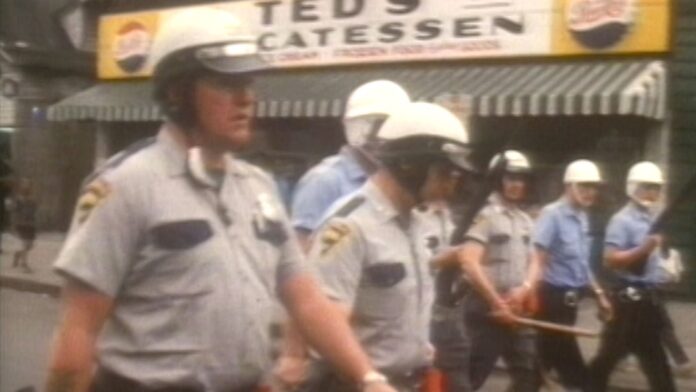Few issues have defined and divided the United States this decade like policing, and Yance Ford’s “Power” seeks to explore its origins. With few exceptions, the Netflix documentary/visual essay is more factual than emotional — let alone revelatory in its examinations — but the film covers enough historical ground to function as a contemporary cinematic flashpoint, aimed at a wide audience who isn’t already steeped in its academic analyses (which have become a fixture of social media these last few years).
Ford provides both the interview questions (frequently interspersed with answers from various subjects) as well as the movie’s voiceover, which begins hesitantly and introspectively, warning the viewer about the breadth, scope and disturbing nature of the subject at hand. It isn’t so much a content warning as it is an act of solace; the filmmaker’s voice is gentle, and he’s ready to guide us through this tumultuous topic.
Despite clocking in under an hour and a half, “Power” is jam-packed with context and footage detailing the multitude of precursors to modern American policing, forces conscripted to patrol and oppress Native Americans, Black slaves and poor workers (white and otherwise) in the 18th, 19th and early 20th centuries. The depth of this historical scrutiny is aimed at imagining a world without policing by reinforcing the way it has descended from malevolent forces, though the film seldom touches on the alternatives and their own academic history.
It does, however, conscript talking heads from various disciples at renowned universities
(plus two Black police officials) to help unearth some of this history. These interviews become the film’s de facto language, while its archival images — pulled from real events, fictional movies and even police instructional films — exist to support these subjects’ opinions and concerns. The film is, in this way, incredibly detailed, but its use of images is seldom piercing or affecting. The visuals always feel secondary to the subject.
Ford’s presence exists in conversation with the images regardless. Sometimes, this is literal. He occasionally comments on what’s being shown, and more vitally, what isn’t. The film blurs or blacks out several videos of contemporary police violence, especially when it might already be familiar to the audiences (e.g. the killing of George Floyd, the spark for nationwide demonstrations in 2020). Just as telling is the thematic conversation unfolding between the filmmaker and his subject matter, and his choice to hold back on certain footage and ideas.
The documentary that put Ford on the map, “Strong Island,” was exemplary in its intimacy, given the subject matter: the murder of Ford’s own brother. The filmmaker has proven more than capable of intimate presentation. While “Power” arrives at a multitude of conclusions about whose bodies have been policed throughout American history, the film curiously never touches on the policing of queerness and the way it ignited liberation movements at the same time as many of the fights for racial justice heavily featured in the film. Ford, as a transgender man, is more than likely familiar with that legacy, but the decision to take a top-down view of systemic violence also ends up being embodied by a sense of personal detachment in the filmmaking.
“Power” is far more observational than it is intimate (barring a brief interview with a repeated victim of New York’s draconian Stop-and-Frisk policy), in part because its subjects’ inner lives are rarely the focus. They exist largely to make verbal comments, rather than as vehicles for cinematic commentary. The film features a particularly revealing moment when Ford offers a follow-up question to one of these academics — an interrogation of her use of language, and what biases even she might hold — but the scene quickly moves on.
With its numerous chapter titles, “Power” seeks to take a macro look at American law enforcement, albeit while using a few micro examples to bolster its points with emotional arguments. The project’s far from sterile, but it feels reluctant to get its hands dirty by plunging them into the most raw and disturbing element of the subject: the violence itself — both the physical and psychological violence — which it seeks to frame as an inherent fixture of policing. Anyone watching the film is likely to learn something, though whether its lessons will stick, or claw their way beneath one’s skin, is less likely.



